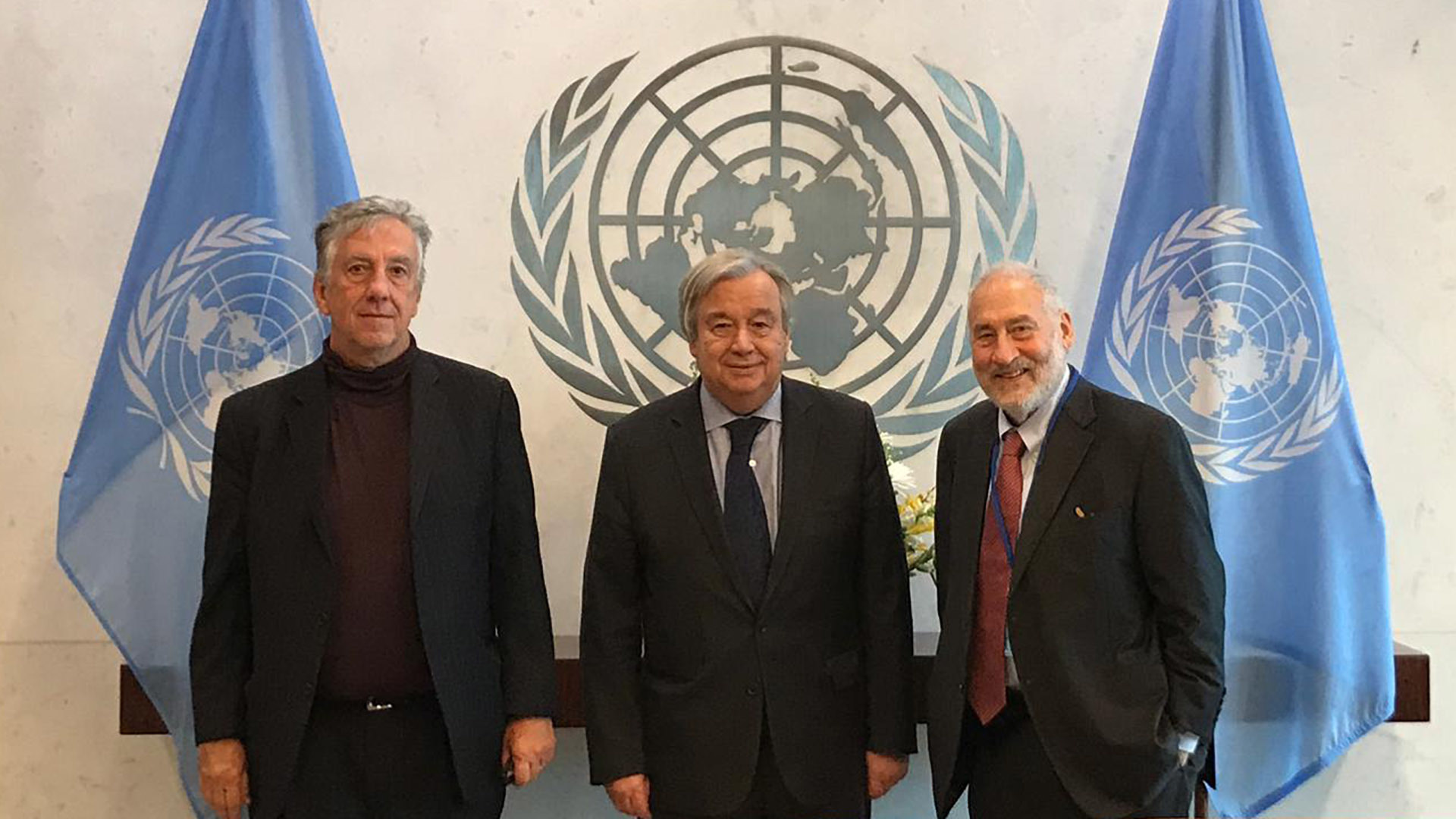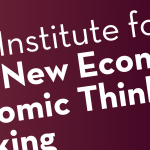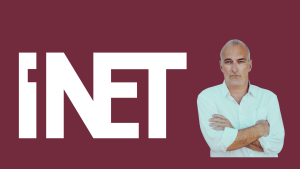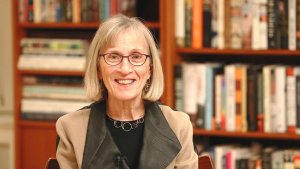António Guterres and CGET Commissioners discuss cooperating on inequality, climate change, multilateralism, and more
This month, United Nations Secretary-General António Guterres hosted
INET President Rob Johnson and INET’s Commission on Global
Economic Transformation (CGET) Co-Chair Joseph Stiglitz to discuss how CGET and the U.N. can work
together to support their respective missions. Co-chaired by Stiglitz and
fellow Nobel laureate Michael Spence, INET launched CGET last fall to outline
new rules for the world economy that will foster shared prosperity.
The Secretary-General, who has also served as Prime Minister of Portugal and U.N. High Commissioner of Refugees, outlined five key areas on which his office and CGET will cooperate: inequality, education, climate change, digital cooperation and technology, and new forms of multilateralism.
Inequality, in particular, is potentially a
strong point of collaboration between CGET and the U.N. Inequality is one of
CGET’s founding focus areas, and the Secretary-General has called tackling
inequality his number one priority. Ensuring an equitable globalization so that
its benefits are shared with everyone is at the core of CGET’s mission. The
Secretary-General mentioned that to tackle growing inequality, there is a need
to increase government capacity in Africa, a region that will have a prominent
role in CGET’s work.
CGET Commissioners and the Secretary-General
are also both focused on the role of education. The Secretary-General and INET
discussed concerns many economists have raised that technological change may
not necessarily create the right jobs for people whose previous professions no
longer exist. Replicating the East Asia growth model will not be possible, due
to increased automation and the development of artificial intelligence.
However, investment in education is one area of that model that countries
should replicate.
Climate change—a core priority for CGET— is also an
area of agreement with the U.N.’s agenda. The Secretary-General identified
several issues that are crucial to tackling it quickly and effectively: regulatory
frameworks, carbon pricing, and a new global economic model that incorporates
the true cost of a rise in global temperatures. The Secretary-General and CGET Commissioners
discussed how governments have to speed up tackling climate change in order to
avoid catastrophic consequences for all of humanity.
The Secretary-General informed CGET about the creation of a
high-level U.N. panel on digital cooperation that will address artificial
intelligence and the effect of technology on labor markets and social safety
nets. CGET is currently exploring aspects of digital cooperation, technology,
artificial intelligence and automation, and will address these areas in its
final report.
Multilateralism and globalization were also naturally important topics of discussion, as both the U.N. and INET/CGET are responding to and analyzing the rise of populist nationalism across the world. The Secretary-General and CGET Commissioners discussed how globalization in itself is not the solution; new and strengthened forms of cooperation among different multilateral organizations are needed to avoid the collapse of the global order.
In the coming months, CGET and the Secretary-General’s office will collaborate on many of these issues, sharing strategy and resources to build a stronger, more equitable global economy.









